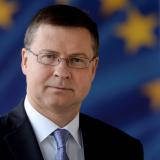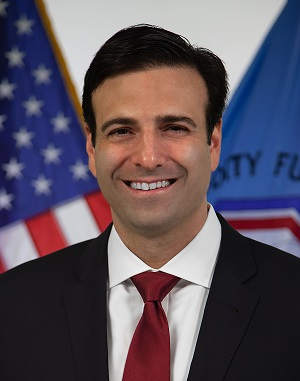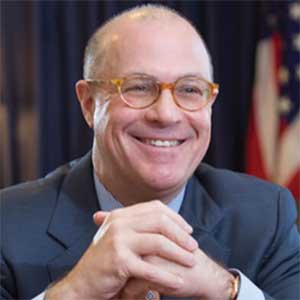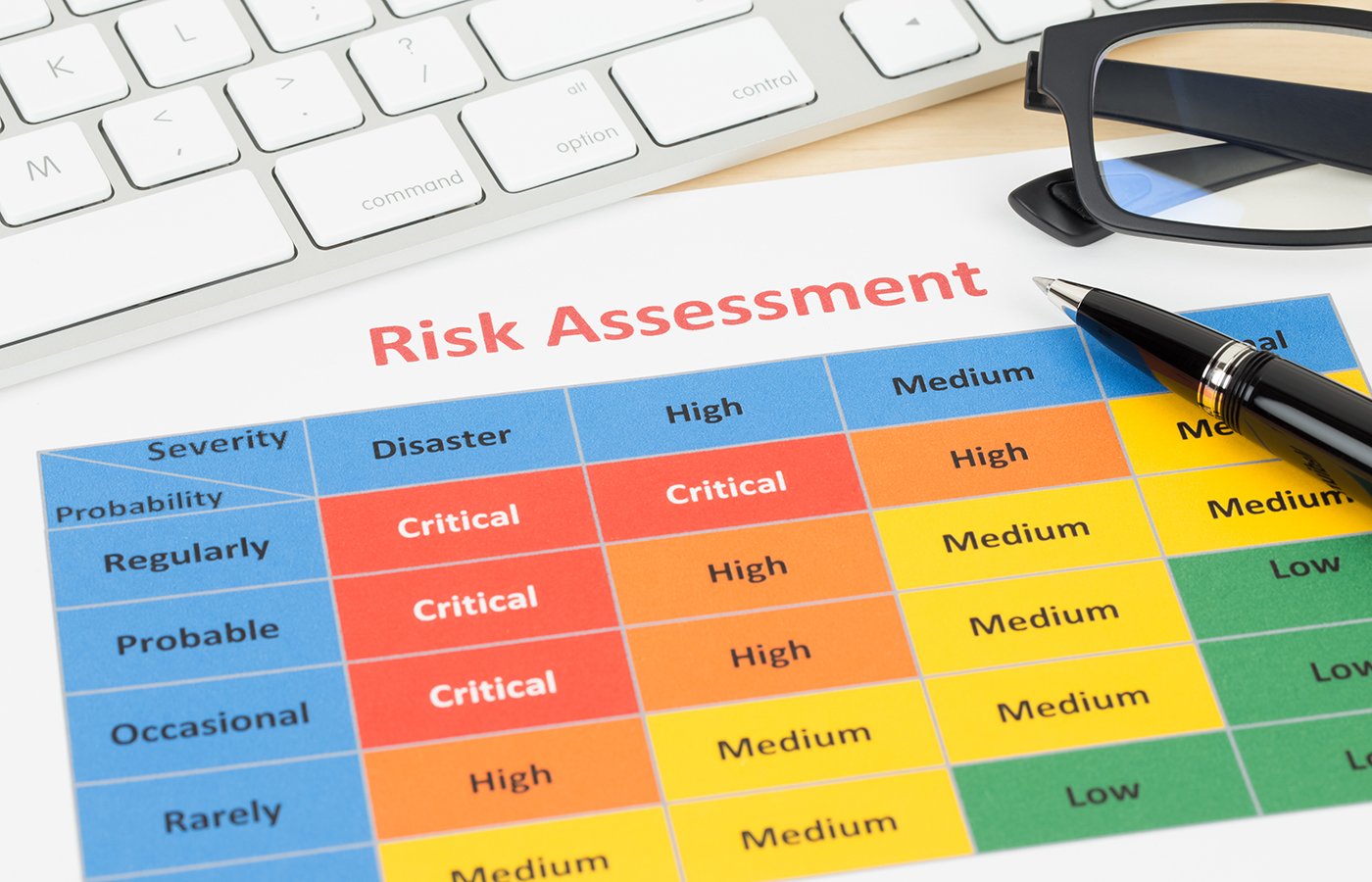Disruptive Technologies
Friday, July 24, 2020
By Jeffrey Kutler
Historically, financial regulatory agencies were anything but centers of innovation and were assumed to be a step or two behind the institutions they supervised, particularly when it came to technology. That has changed drastically over the past half decade, both in terms of regulators' understanding and application of increasingly accessible and affordable advances in such areas as cloud computing and machine learning, and their accommodation and encouragement of fintech systems and services, whether in established firms or entrepreneurial start‐ups.
Virtually every significant regulator and central bank now has an innovation office or initiative if not also a “sandbox,” a safe space for fintech experimentation like those pioneered by the U.K. Financial Conduct Authority (FCA) and Monetary Authority of Singapore (MAS) in 2015 and 2016. These programs have been framed as promoting “responsible innovation.” Even as the regulators stress that they are not letting their regular guards down, they are allied in support of innovation for the sake of industry viability and perhaps even global competitiveness and leadership.
These interests are now converging in the rapidly evolving and burgeoning field of digital assets, encompassing virtual currencies and derivatives, blockchain infrastructures and various forms of tokenization. Although maturing to the point where more and more institutional investors are in the market, the tradeable assets have not been easy for regulators to fit into existing rule constructs. And the stakes are high for technology, product and service development, not to mention the potential for stablecoins or central bank digital currencies to reshape commerce or become instruments of sovereign economic power.
On one level, it is a wide‐open competition for high-tech superiority; on another, it is shaping up as a geopolitical contest that is reflected in government and regulatory officials' words and actions.
“A Good Chance for Europe”
“This is a good chance for Europe to strengthen its international standing and to become a global standard-setter, with European companies leading new technologies for digital finance,” European Commission executive vice president Valdis Dombrovskis said in a June 23 speech on planned legislation designed to put the EU in “a position to lead the way on regulation.”

The motivation and objective, as Dombrovskis explained it: “To stay ahead of the game and compete globally, [Europe's financial sector] must make the most of digital opportunities.”
He said that crypto assets and distributed ledger technology, which is also known as blockchain, will be a “first test case” for a common legislative approach that “supports and stimulates innovation.”
His pro-competitive message was balanced by a now-common disclaimer: “At the same time, we need to continue regulating and supervising risks appropriately . . . Our approach is to ensure that all activities and all risks are properly regulated and supervised. EU rules must be fully applied, and enforced, by supervisory authorities.”
A CFTC Priority
Heath Tarbert, chairman of the U.S. Commodity Futures Trading Commission, similarly considers national standing in the crypto-assets race.
“I want the United States to lead, particularly in the blockchain technology that underlies digital assets,” Tarbert said in a November 2019 television interview. He believes that “whoever ends up leading in this technology will end up writing the rules of the road for the rest of the world. My emphasis is on making sure that the United States is a leader.”
Tarbert has also said that digital assets are a good fit for his agency's principles-based regulatory approach {see CFTC's Chairman Champions Principles-Based Regulation).
On July 8, CFTC unveiled its 2020-'24 strategic plan. One of its five goals is “being tough on those who break the rules.” Another is “encouraging innovation and enhancing the regulatory experience for market participants at home and abroad,” which is elaborated upon in the body of the plan: “Address the risks and opportunities arising from '21st century commodities.' We will develop a holistic framework to promote responsible innovation in digital assets.”
A U.K. “Spike”
Ever in the forefront, the FCA announced survey results June 30 showing a “1.1 million spike,” in a year, in the number of U.K. consumers buying crypto assets like Bitcoin, Ether and Ripple, to a total of 2.6 million people.
The FCA report “reveals the increasing popularity of crypto assets among the U.K. consumer population and underlines the importance of our work to gain a deeper understanding of this market and how people interact with these assets,” said Sheldon Mills, interim executive director of strategy and competition. “Crypto assets present risks and opportunities for consumers, and we hope these insights will help inform the policy debate in the U.K. and internationally as the use of these assets continue to grow.”
The agency also said it is “working with the government and Bank of England, as part of a U.K. Cryptoasset Taskforce, to understand and address the harms from crypto assets whilst encouraging innovation in the interests of consumers. In its March 2020 budget, the government said it intends to consult on measures to bring certain crypto assets into scope of financial promotions regulation.”
FCA added to its fintech firsts a multilateral trading facility (MTF) license granted to futures platform Crypto Facilities, which becomes the first such licensed derivatives venue outside the U.S.
“We undergo these licensing efforts because Kraken is about making crypto accessible for everyone,” Jesse Powell, CEO and co-founder of San Francisco-based digital asset exchange Kraken, Crypto Facilities' parent company, said on July 6. “This particular license means that a sophisticated class of investors, limited by their own requirements to interface with a regulated venue such as an MTF, will now have access to crypto derivatives in Europe for the first time. More participants means more liquidity and a better experience for everyone.”
Regulators Collaborating
The U.K. regulator was the initiator of the Global Financial Innovation Network (GFIN), a group of more than 50 agencies, formed in 2019, which promotes cooperation and exchanges of views and, according to its website, “seeks to provide a more efficient way for innovative firms to interact with regulators, helping them navigate between countries as they look to scale new ideas.”

Another collective body in the mix is the Bank for International Settlements Innovation Hub, formed last year “to foster international collaboration on innovative financial technology within the central banking community.” Initial hub centers were situated in Hong Kong, Singapore and Switzerland, working with the respective central banks. Others will open in the next two years with the Bank of Canada, Bank of England, European Central Bank, and four Nordic central banks, along with a strategic partnership with the Federal Reserve System, BIS said in a June 30 announcement.
“With this expansion, the Innovation Hub will be well placed to advance work on a broad range of issues of importance to the central banking community, including digital currency and digital payments, cybersecurity, distributed ledger technology and artificial intelligence. This expansion is a testament to the central banking community's commitment to innovation and cooperation,” said BenoÎt CoeurÉ, the former European Central Bank director who heads the Innovation Hub.
The strategy of Monetary Authority of Singapore, active in both GFIN and the BIS hub initiative, was on display July 13 as it announced completion, with investment fund Temasek, of the final report on a project to build a blockchain-based multicurrency payments prototype, and on how the network “could benefit the financial industry and blockchain ecosystem.”
“As with all innovation adoption, there is a time for experimentation, and a time for commercialization,” said MAS chief fintech officer Sopnendu Mohanty. “Project Ubin has worked with the financial industry and blockchain community on a journey of experimentation, prototyping and learning. This has built a strong foundation of knowledge, expertise and experience, and paved a path towards commercial adoption. Following the successful experimentation over five phases, we look forward to greater adoption and live deployment of blockchain technology.”
New York's Next Steps
Responsible-innovation competition is both inter- and intra-national - among U.S. states. The New York State Department of Financial Services (DFS) staked out an early and aggressive position on virtual currencies with the so-called BitLicense in 2015, with heads of the department underlining both the need for compliance and enforcement, and a desire to preserve New York's status as a global capital of financial services and financial technology. (See New York's DFS: A State Regulator on the World - and Crypto - Stage)
In June this year, DFS Superintendent Linda Lacewell announced a series of additional policies and guidance affecting, for example, virtual currency conditional licensing and self-certification of coin listings, and enhancing the transparency of DFS practices, all in hopes of “mak[ing] it easier for virtual currency companies to successfully operate in New York,” according to the announcement.
DFS also signed a memorandum of understanding (MOU) with the State University of New York for launching a virtual currency program, “SUNY BLOCK,” which will support “nascent virtual currency entities from local communities, including those started or run by students or alumni,” under the newly proposed conditional licensing framework.
“This MOU with SUNY is a strategic step to diversify and deepen the next wave of innovators in the virtual currency space in New York,” Lacewell said. “The DFS actions . . . will boost responsible innovation and help get New York's economy back on its feet. DFS is proud to foster accessibility and will continue to blaze a trail in the virtual currency marketplace.”
Perceived U.S. Shortcomings
There is clamor in the crypto community for authorities to step up to the leadership challenge - and for clarity.
Reacting favorably to reports that the G-20 is doing groundwork on a regulatory framework for digital payments, ahead of an October finance ministers summit, Ted Quek, chief technical officer of trading technology and liquidity provider Broctagon Fintech Group, commented, “While the global landscape has typically been fragmented, we continue urging governments to take an active approach in developing a crypto regulatory consensus as more traditional investors continue to enter the ecosystem.”

The U.S. has been “slow to the game” on blockchain and cryptocurrency and losing ground to China, Chris Larsen, co-founder and executive chairman of Ripple, said in a YouTube interview, as reported by Cointelegraph. China is a hotbed of cryptocurrency mining, and many believe it is farthest along toward a central bank digital currency (CBDC).
The not-for-profit Digital Dollar Project, co-led by former CFTC chairman J. Christopher Giancarlo, is seeking to catalyze discussion of a U.S. CBDC. Private sector developments like Facebook's Libra “are helping advance innovation, but the time has come to future-proof the greenback by exploring implementation options for a U.S. digital dollar,” the group says. Senator Tom Cotton, Republican of Arkansas, supported the idea at a recent hearing.
Digital Dollar Project's white paper asserts: “If the U.S. dollar is to remain the world's primary reserve currency in the unfolding century, it cannot remain an analog instrument and unit of account for things increasingly denominated as digital tokens. It must itself become a digital tokenized currency that measures, supports, and transacts with the world's digital tokenized things of value.”
If regulators fail to provide more clarity on blockchain, cryptocurrencies and the supporting technologies that will power the next-generation global financial system, the U.S. could face a potential catastrophe, Larsen of Ripple warned.
In July 2019 Senate Banking, Housing and Urban Affairs Committee testimony, Circle Internet Financial co-founder, chairman and CEO Jeremy Allaire said, “In the United States, regulatory uncertainty and the application of laws that do not contemplate digital assets has led to the loss of significant opportunity for U.S. crypto companies, and ultimately for consumers, businesses, and the national economy as a whole.”
Securities and Exchange Commission precedent and registration requirements for assets deemed securities have “had a material impact on the competitiveness of U.S. crypto companies, and is a backward- rather than forward-looking approach,” Allaire added. “Congress should consider new laws that protect consumers while not causing companies to fixate on nearly century-old definitions rather than innovation.”
Looking Abroad
Broctagon CEO Don Guo views China and Singapore, which is his base, as “leading the way in terms of regulation.”
As he put it in a May Yahoo Finance article, “a clear regulatory framework for cryptos is yet to be put in place. In the U.S., all tokens are classified as securities, which makes it very difficult for most crypto companies to operate there, while at the same time, countries like India and South Korea have just decided to overturn their cryptocurrency bans.”
“While the U.S. has been working through these issues,” Allaire said in his testimony, “foreign, mostly Asian-based, crypto companies have begun to dominate, while U.S. companies have lost considerable market share.
“The result of the uncertain and restrictive regulatory environment has led many digital asset projects and companies to domicile outside of the United States and to block U.S. persons and businesses from accessing products and technologies.” Circle, for one, moved part of its business to Bermuda and the jurisdiction of its “forward-looking Digital Asset Business Act.”
SEC commissioner Hester Peirce, who has often cast dissenting votes that align her with crypto industry advocates, closed a July 21 speech in Singapore, which included a discussion of the SEC's legal action against initial coin offering issuer Telegram Group, by saying: “Innovation in the digital asset industry has and will continue to challenge us as securities regulators. I would prefer that we not only hold accountable the reckless innovators . . . but also attempt to provide the more cautious innovators some guidance on how to avoid the hall of mirrors and on what we consider to be adequate braking technology.”

“Contrary to popular belief, the cryptocurrency market is subject to a complex web of state and federal regulatory oversight,” the chief legal officer of crypto exchange company Coinbase told a California legislative committee in October 2019. The executive, Brian Brooks, said the state had an opportunity to create “a single charter for crypto companies that would allow such companies to operate within a single corporate entity that is supervised in a rigorous manner but without the ambiguity and complexity that characterizes the status quo. California could successfully compete with New York for crypto businesses if it solved a few discrete problems.”
In March this year, Brooks left Coinbase and joined the Office of the Comptroller of the Currency, the U.S. national bank regulator, as senior deputy comptroller and chief operating officer. He is currently acting comptroller, overseeing an agency with an active Office of Innovation, and has said he wants to be seen as the “first fintech comptroller.”
In a July 22 interpretive letter, the OCC clarified banks' authority to provide cryptocurrency custody services and “reaffirm[ed] the OCC's position that national banks may provide permissible banking services to any lawful business they choose, including cryptocurrency businesses, so long as they effectively manage the risks and comply with applicable law.”
Single‐Market Potential
Continental Europe has a few pockets of fintech start-up success; Germany has stood out in digital banking and payments, for example. The European Union is looking to pack a stronger punch with the developing digital strategy covered in the June speech by Dombrovskis of the European Commission. He addressed obstacles faced by start-ups, such as different licensing procedures “that prevent them from exploring the full potential of the single market.”
“If Europe is to make the most out of innovations such as distributed ledger technology, artificial intelligence and data-driven finance, we have to maximize the single market's potential so that companies can scale up across borders . . . This is essential if European companies are to compete with their peers in Asia and the United States,” Dombrovskis said.
He said that “later this year, we will present a digital finance strategy for Europe to make the most out of digital finance and compete globally, removing more regulatory barriers between countries, while ensuring adequate supervision.”
It will bring needed legal certainty to crypto assets with a common approach “that supports and stimulates innovation.” And there will be a proposed “pilot scheme to give some regulatory flexibility for experimentation - but well framed and under close supervisory oversight,” and ensuring proportionate risk management.
“That means lighter rules for less risky projects,” Dombrovskis explained. However, “stablecoins are likely to raise additional challenges in terms of financial stability and monetary policy. In these cases, because of their potentially systemic role, our rules will be stronger.”
AML/CFT Rules
Regardless of the national or supranational regulatory interplay on digital assets, anti-money-laundering and countering the financing of terrorism will remain a constant. The Financial Action Task Force (FATF), the global AML/CFT watchdog, signaled as much in a June report to G-20 finance ministers and central bank governors on application of its standards to stablecoins - those designed to maintain a stable value relative to underlying currencies or assets.
“To mitigate the ML/TF risks of virtual assets, the FATF revised its standards in June 2019 to require virtual asset service providers [VASPs] to implement the full range of preventive measures against ML/TF,” the report said, adding, “The revised FATF standards clearly apply to so-called stablecoins.”
Whether they are deemed virtual or traditional financial assets, “a range of the entities involved in any so-called stablecoin arrangement will have AML/CFT obligations under the revised FATF standards. Which entities will have AML/CFT obligations will depend” on the centralized or decentralized structure of their offerings.
FATF also weighed in on central bank digital currencies: “Once a CBDC is established, financial institutions, designated non-financial businesses and professions and VASPs that deal in the CBDC will have the same AML/CFT obligations as they do with fiat currencies or cash. A customer transacting using a CBDC will have the same customer due diligence obligations as if it was an electronic transaction using fiat currency.”
•Bylaws •Code of Conduct •Privacy Notice •Terms of Use © 2024 Global Association of Risk Professionals




